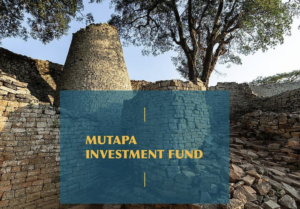ZIMBABWE’S MUTAPA INVESTMENT FUND UNDER THE MICROSCOPE: A CALL FOR TRANSPARENCY AND ACCOUNTABILITY

In a recent advisory, the International Monetary Fund (IMF) emphasized the importance of transparency and accountability for Zimbabwe’s newly rebranded sovereign wealth fund, now known as the Mutapa Investment Fund. This guidance comes amidst growing concerns over the fund’s governance and operational transparency. The IMF’s insights were aimed at ensuring that the fund adheres to international norms and best practices in corporate governance.
The advice from the IMF underlines the necessity for the Mutapa Investment Fund to establish a framework that prioritizes clear corporate governance arrangements, transparency in financial reporting, and rigorous accountability oversight. “The [IMF] mission encourages the authorities to ensure that the corporate governance arrangement, transparency and financial reporting, and accountability oversight of the recently established Mutapa fund are in line with international standards and good practices,” a statement from the IMF highlighted. This call to action seeks to position the fund on a path that fosters trust and efficiency, pivotal for the nation’s economic development and investor confidence.
However, the inception of the Mutapa Investment Fund has not been without its controversies. Tendai Biti, a former finance minister, has critiqued the fund, labeling it an “unconstitutional capture of public funds.” Such a statement underscores deep-seated issues of governance and legal adherence that threaten the fund’s legitimacy and operational integrity. The lack of parliamentary oversight further exacerbates these concerns, with the legislative body yet to exercise its powers in demanding transparency and accountability from the fund’s management.
The Mutapa Investment Fund’s structure has also come under scrutiny. The decision to warehouse dozens of state-owned enterprises under the fund’s umbrella has been met with skepticism and, in some circles, outright criticism. Commentators and observers have questioned the legality of this arrangement, especially in light of the exemptions granted by President Mnangagwa. These exemptions allow the state entities under the fund to bypass the Public Procurement and Disposal of Public Assets Act, raising serious questions about the fairness and legality of procurement processes and asset disposals.
This situation not only poses a risk to the integrity of Zimbabwe’s public financial management but also to the broader economic landscape. The exemption from compliance with established procurement laws can lead to a lack of competition, potential inefficiencies, and could foster an environment ripe for corruption and mismanagement. Such outcomes would be antithetical to the very principles of good governance, transparency, and accountability that the IMF, and indeed the global community, advocate for.
The establishment of the Mutapa Investment Fund represents a critical juncture for Zimbabwe’s approach to sovereign wealth management and state enterprise oversight. The concerns raised by the IMF and other observers highlight the imperative for Zimbabwean authorities to adopt a more open and responsible governance model. Implementing rigorous standards for corporate governance, ensuring transparency in operations and financial reporting, and establishing a robust framework for accountability are not just recommendations but necessities for the fund’s success and, by extension, for the economic wellbeing of Zimbabwe.
As Zimbabwe navigates this complex terrain, the international community’s eyes remain fixed on the country’s commitment to reform and adherence to global standards. The path forward for the Mutapa Investment Fund is fraught with challenges, but with concerted efforts towards transparency and accountability, it also offers an opportunity for significant economic advancements and the restoration of trust in public institutions.




The IMF’s emphasis on the importance of transparency and accountability for the Mutapa Investment Fund is a crucial reminder. For such a fund to succeed and genuinely contribute to the nation’s economic development, it must adhere to the highest standards of corporate governance. Zimbabwe’s approach to managing this fund will be a litmus test of its commitment to good governance and economic reform.
The establishment of the Mutapa Investment Fund represents a significant opportunity for Zimbabwe to catalyze economic development and manage its resources more effectively. By adhering to the principles of transparency, accountability, and good governance, the fund has the potential to make substantial contributions to the nation’s prosperity.
The critique by Tendai Biti highlights significant legal and ethical concerns surrounding the establishment and operation of the Mutapa Investment Fund. The bypassing of parliamentary oversight and exemptions from the Public Procurement and Disposal of Public Assets Act raises alarms about the potential for corruption and mismanagement. Addressing these issues head-on is essential for ensuring the fund’s legitimacy and effectiveness.
The IMF’s call for the fund to align with international standards and best practices is not merely advisory but a foundational requirement for success. Implementing such standards will be pivotal in building investor confidence and fostering an environment conducive to sustainable economic growth. Zimbabwe must leverage this opportunity to showcase its commitment to global norms and economic stewardship.